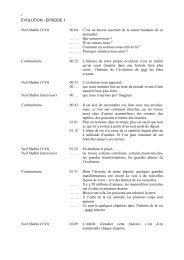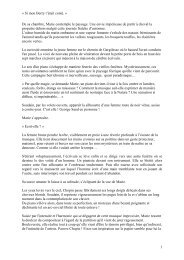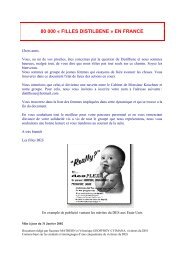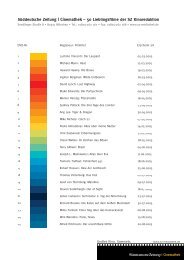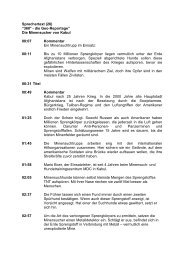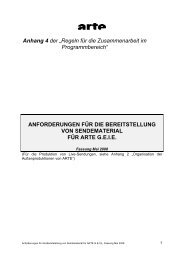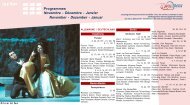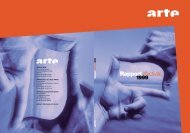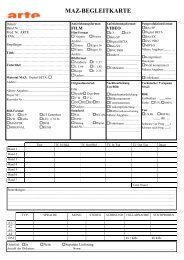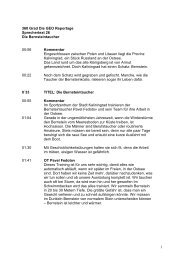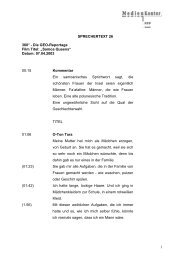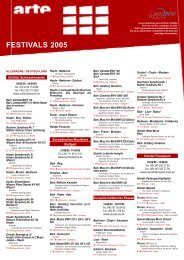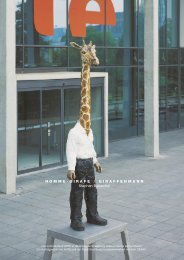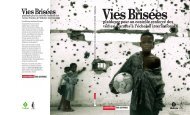POPs IN AFRICA HAZARDOUS WASTE TRADE 1980 - 2000 ... - Arte
POPs IN AFRICA HAZARDOUS WASTE TRADE 1980 - 2000 ... - Arte
POPs IN AFRICA HAZARDOUS WASTE TRADE 1980 - 2000 ... - Arte
You also want an ePaper? Increase the reach of your titles
YUMPU automatically turns print PDFs into web optimized ePapers that Google loves.
arrangement between Italian businessmen and Nigerian officials.<br />
In the tiny delta port of Koko, a Nigerian citizen, Sunday Nana,<br />
agreed to rent his backyard to an Italian businessman, Gianfranco<br />
Raffaelli, for approximately $100 a month. The property then<br />
was used for the storage of 8,000 drums of hazardous wastes,<br />
including highly toxic PCBs.<br />
The wastes were exported from Pisa and other Italian ports. The<br />
Koko waste disposal scheme was masterminded by Raffaelli and<br />
Renato Pent, who control the waste broker firms of Ecomar and<br />
Jelly Wax, respectively. The receiving firm was Nana’s Iruekpen<br />
Construction Company. The wastes were imported as substances<br />
“relating to the building trade,” and as “residual and allied<br />
chemicals.”<br />
The leaking, randomly stacked barrels of wastes discovered in<br />
Koko had labels with the names of the following companies:<br />
Dyno-Cyanamid (Norway)<br />
Elma (Italy)<br />
Euro-Citrus ( Netherlands)<br />
ICI (Italy)<br />
Lanvik Pigmentfabrikk (Norway)<br />
PPG (Pittsburgh, PA, U.S.)<br />
Varn Products Ltd. (U.K.)<br />
Five shipments occurred, totaling 4,330 tons, using the following<br />
vessels:<br />
August 26, 1987 (MV Baruluck) -- 1,800 tons.<br />
Sept. 21, 1987 (MV Danix, Danish vessel) -- 187 tons.<br />
Nov. 19, 1987 (MV Line, West German vessel) -- 487 tons.<br />
March 15, 1988 (MV Line) -- 900 tons.<br />
April 28, 1988 (MV Juergen Vesta Denise) -- 700 tons.<br />
In early June, in response to the dumping, Nigeria recalled its<br />
ambassador from Italy and seized an Italian freighter, the Piave,<br />
which was not involved in waste trade, in order to pressure Italy<br />
to remove the wastes.<br />
On July 26, 1988, Nigeria released the Piave and its 24-member<br />
crew. The owners of the Piave are demanding USD 1 million in<br />
compensation from the Italian government. As the Koko scandal<br />
broke, Raffaelli fled Nigeria, but an Italian employee of Iruekpen<br />
Construction, Desiderio Perazzi, and at least 54 others involved<br />
in the scandal were jailed by the Nigerian government.<br />
On July 17, 1988, the Italian government agreed to direct the<br />
removal of the wastes from Nigeria and return them to Italy.<br />
Over 150 Nigerian workers, most from the Nigerian Port<br />
Authority, were employed in the removal of the wastes. The<br />
Nigerian government provided mechanical equipment, protective<br />
80



